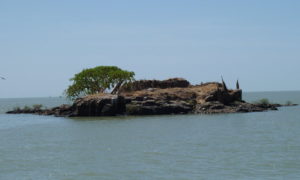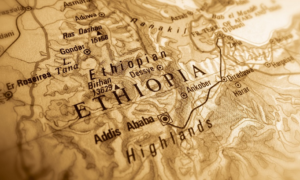People buy water while waiting in a bus line to pay their respects to former South African President Nelson Mandela in Pretoria December 13, 2013. REUTERS/Yves Herman HARARE, Feb 2 (Thomson Reuters Foundation) –
The joke in Harare these days is that more people per square metre are drinking bottled water here – in the drought-hit capital of Zimbabwe – than in wealthy Manhattan. Harare has developed a huge appetite for bottled water. An estimated 300,000 litres change hands daily in this city of just over 1.6 million inhabitants, with Zimbabwe’s finance minister, Patrick Chinamasa, saying that imports have reached “crazy” proportions. Buyers include poor families as well as rich, and such is the upswing of demand that bottled water now outsells alcohol and soft drinks in some desperately thirsty neighbourhoods.
The reason for the boom is simple: what’s coming out of the tap in many homes and businesses is increasingly undrinkable. “Municipal water is smelly. Often we see visible dirty particles floating,” Precious Shumba, chair of the Harare Residents’ Trust, the biggest civic pressure group in the city, said in an interview with the Thomson Reuters Foundation. DISEASE THREAT As water quality declines, in part the result of worsening drought, some families who drink or bathe in what comes out of the tap are becoming sick with problems from rashes to typhoid, health authorities say.
The capital has grappled with problems providing clean water for most of a decade, but an extended drought, crippling power cuts, a cash-short municipal government and an exodus of qualified water engineers mean the city now produces only about 40 percent of the water needed, Shumba said. About half of the city’s water is lost through leaks in failing distribution pipes on its way to homes, and illegal connections are also a problem, water engineers say. Residents nervous about what’s coming out of their taps have increasingly turned to alternatives for drinking water.
Domestic refrigerators are packed with containers of imported or local purified water. In many homes, the city’s municipal water is only used for bathing, gardening, laundry, or watering animals. WATER TOUTS The surge in demand for bottled water has led to new business opportunities. Sheila Dezha, 40, a widow, collects empty plastic bottles from bins and sidewalks, scrubs them clean and refills them with well water. After refrigerating the bottles overnight, she sells them to passersby near malls and restaurants, […]
Click here to view original web page at news.trust.org






